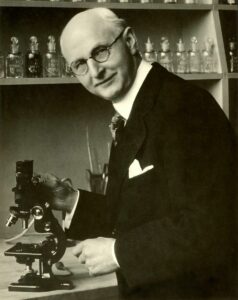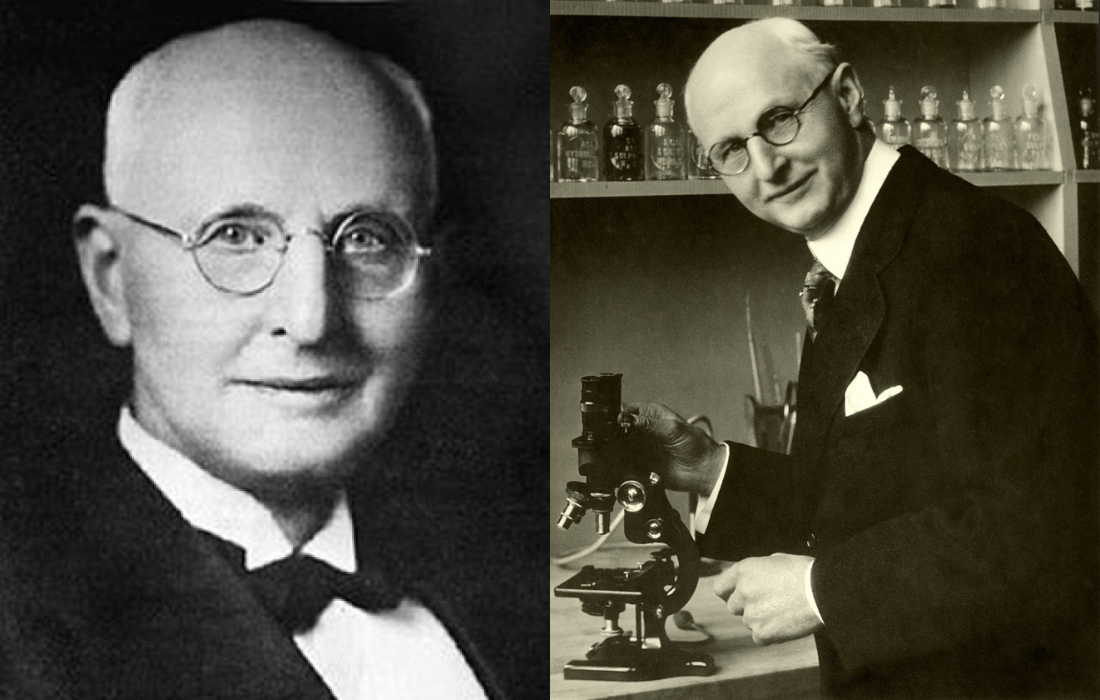As a huge fan of Weston A. Price’s work, I can confidently say that his research has done wonders for those seeking preventative lifestyle dietary changes for a long and healthy life. Despite the controversy and the smear campaigns, it’s important to recognize that Price’s work poses a significant threat to the current “sick care” model that dominates modern medicine. His findings don’t align with the expansionist agenda of the pharmaceutical and medical industries. I hope this disclaimer of personal bias is clear; I’m just a man stating his opinions based on his experience of historical, nutritional, and health studies research.

Much like Dr. Sebi, Price’s real-life observations and years of studies have been unfairly dismissed by academic gatekeepers who demand traditional “sources” while ignoring the undeniable health benefits experienced by those who follow his principles. This article aims to provide a fair and balanced overview of Price’s work, drawing on various sources, studies, and expert opinions, including insights from Paul Chek and Ben Greenfield’s books and teachings.
The Life and Work of Weston A. Price
 Weston A. Price was born in Ontario, Canada, in 1870 and practiced dentistry in Cleveland, Ohio, in the early 20th century. Dissatisfied with the increasing prevalence of dental caries and degenerative diseases among his patients, Price embarked on a series of travels to study the diets and health of isolated, non-industrialized peoples. His findings, published in his seminal book Nutrition and Physical Degeneration, have been both lauded and criticized.
Weston A. Price was born in Ontario, Canada, in 1870 and practiced dentistry in Cleveland, Ohio, in the early 20th century. Dissatisfied with the increasing prevalence of dental caries and degenerative diseases among his patients, Price embarked on a series of travels to study the diets and health of isolated, non-industrialized peoples. His findings, published in his seminal book Nutrition and Physical Degeneration, have been both lauded and criticized.
Price’s Travels and Observations
Price traveled to diverse regions, including the Swiss Alps, African tribes, and South Pacific islands, observing that people who consumed traditional diets had significantly lower rates of dental decay and degenerative diseases compared to those who adopted Western diets rich in refined sugars and processed foods. He documented his observations with photographs and detailed records of dental and overall health.
Traditional Diets and Nutrient Density
One of Price’s key conclusions was that traditional diets were nutrient-dense, often containing fat-soluble vitamins A, D, and K2 in much higher quantities than modern diets. He noted that these nutrients played crucial roles in maintaining dental health, bone structure, and overall physical development. His advocacy for nutrient-dense whole foods has influenced many modern dietary movements, emphasizing the importance of high-quality, unprocessed foods.
Defending the Legacy of Weston A. Price
Despite Price’s significant contributions, his work has faced relentless criticism. Much of this stems from the fact that his research threatens the profitability of the current medical system, which thrives on treating chronic diseases rather than preventing them. Price’s findings highlight the stark health disparities between traditional and modern societies, shining a light on the shortcomings of the Western diet and lifestyle.
Methodological Concerns and Unfair Criticisms
Critics often argue that Price’s research lacked the scientific rigor and controls typical of modern studies. His observations were largely anecdotal and based on qualitative assessments rather than quantitative data. However, dismissing his work on these grounds overlooks the practical, real-world benefits observed by those who have adopted his dietary principles.
Challenging the “Myth of the Healthy Savage” Accusation
Price’s tendency to romanticize traditional diets and lifestyles has been criticized as the “myth of the healthy savage.” While his work highlighted the benefits of traditional diets, it often overlooked the challenges and limitations faced by these populations. Yet, it’s essential to focus on the undeniable health benefits of nutrient-dense diets and to question why such diets are not more widely promoted in our health guidelines.
Modern Perspectives on Price’s Contributions
Despite these criticisms, many aspects of Price’s work have found support in contemporary research, particularly his emphasis on nutrient density and the detrimental effects of processed foods.
Nutrient Density and Health
Recent studies have reinforced the importance of nutrient-dense diets for maintaining health and preventing chronic diseases. For instance, research published in the journal “Nutrients” highlights the role of fat-soluble vitamins in immune function, bone health, and cardiovascular health. Price’s observations about the benefits of traditional diets rich in these nutrients are echoed in modern nutritional science.
The Impact of Processed Foods
Price’s warnings about the negative effects of processed foods have also been validated by contemporary research. Studies have linked high consumption of refined sugars, trans fats, and artificial additives to increased risks of obesity, diabetes, cardiovascular diseases, and dental decay. These findings align with Price’s observations of the health decline in populations that adopted Western diets.
The Legacy of Weston A. Price
Weston A. Price’s legacy is complex, encompassing both valuable insights and contentious claims. His work has inspired various movements and organizations dedicated to promoting traditional diets and holistic health practices.
The Weston A. Price Foundation
Founded in 1999, the Weston A. Price Foundation (WAPF) aims to disseminate Price’s research and advocate for dietary guidelines based on traditional foods. The foundation promotes the consumption of raw milk, fermented foods, grass-fed animal products, and nutrient-dense whole foods. While some of WAPF’s recommendations have been criticized for lacking scientific backing, the organization has played a significant role in raising awareness about the importance of traditional diets.
Influences on Modern Health Movements
The Paleo and Ancestral Health Movements
Weston A. Price’s research has had a profound influence on modern dietary movements such as the Paleo diet and the broader ancestral health movement. These movements emphasize the consumption of unprocessed, nutrient-dense foods, mirroring Price’s advocacy for traditional diets. According to Ben Greenfield in his book “Boundless,” the Paleo diet seeks to replicate the dietary patterns of our ancestors, focusing on whole foods like grass-fed meats, wild-caught fish, and organic produce. This approach aligns closely with Price’s findings that traditional diets promote better health outcomes.
Holistic Health and Paul Chek
Paul Chek, a renowned holistic health practitioner, has also drawn inspiration from Weston A. Price’s work. In his teachings, Chek emphasizes the importance of nutrient-dense, whole foods for maintaining optimal health. He often references Price’s research to highlight the negative impact of modern processed diets on physical and mental health. Chek’s approach integrates physical, emotional, and nutritional aspects of health, advocating for a balanced and holistic lifestyle.
 Chek has publicly credited Price’s work multiple times. In his book How to Eat, Move and Be Healthy, Chek discusses the importance of traditional diets and nutrient-dense foods, echoing Price’s findings. Chek’s C.H.E.K Institute also offers courses that incorporate Price’s principles, emphasizing the vital role of nutrition in achieving holistic health. Chek has been quoted saying, “Weston A. Price was a pioneer in understanding the true essence of nutrition, and his work remains a cornerstone in holistic health practices.”
Chek has publicly credited Price’s work multiple times. In his book How to Eat, Move and Be Healthy, Chek discusses the importance of traditional diets and nutrient-dense foods, echoing Price’s findings. Chek’s C.H.E.K Institute also offers courses that incorporate Price’s principles, emphasizing the vital role of nutrition in achieving holistic health. Chek has been quoted saying, “Weston A. Price was a pioneer in understanding the true essence of nutrition, and his work remains a cornerstone in holistic health practices.”
Check out “Uncle Paul’s” video series at the Price-Pottenger Foundation! Paul dives deep into Weston A. Price’s research and how traditional, nutrient-dense diets can seriously boost your health. Perfect for anyone curious about how our ancestors ate and thrived.
Controversies and Criticisms
Raw Milk Debate
 One of the most contentious aspects of Price’s legacy is his advocacy for raw milk. The WAPF strongly promotes the consumption of raw, unpasteurized milk, claiming it offers superior nutritional benefits. However, this recommendation has been met with significant opposition from public health authorities due to the “potential risks of bacterial contamination”.
One of the most contentious aspects of Price’s legacy is his advocacy for raw milk. The WAPF strongly promotes the consumption of raw, unpasteurized milk, claiming it offers superior nutritional benefits. However, this recommendation has been met with significant opposition from public health authorities due to the “potential risks of bacterial contamination”.
I could talk about this topic and history for hours and will likely circle back to link a more in-depth article on raw milk in the future, but just know that local, organically raised cow’s raw milk is one of God’s beautiful blessings on this earth. It allows people to get the full spectrum of enzymes and vitamins that they cannot get with pasteurized, homogenized dairy. I cannot stress enough the importance of reading Paul Chek’s book How to Eat, Move & Be Healthy for more information on this topic, or additional resources such as RealMilk.
Vaccination Stance
The WAPF’s stance on vaccinations is perhaps one of the most controversial aspects of its advocacy. The foundation argues that proper nutrition can prevent diseases more effectively than vaccines, a claim that has sparked intense debate. Critics argue that such views are dangerous and unsupported by scientific evidence. However, it is essential to understand this position within the broader context of Price’s work, which emphasizes the robust health of primitive cultures compared to the modern, often sickly, Western populations.
While the anti-vaccine stance of WAPF is highly contentious, it is crucial to acknowledge that Price’s work does shine a light on the significant health disparities between traditional and modern societies. His observations of indigenous populations thriving on nutrient-dense diets while the Western world suffers from chronic diseases raise important questions about our modern lifestyle and quality of nutrition.
There are many layers here and we are living in a time where environmental pollutions are so high (i.e. smog, mold in buildings, microplastics, EMFs, etc.) that nutrition is just one piece of the puzzle. Most of us are not in primitive settings, but there is a huge movement of millennials and other generations who are returning to homesteading, growing their own food, and feeling the great blessing and responsibility of raising a sustainable food supply for their families. With such broken relationships to our food and where it comes from, I agree with Price and my other CHEK colleague Troy Casey that we should strive to “J.E.R.F” Just Eat Real Food.
Price’s Influence on Modern Nutritional Science
Understanding Fat-Soluble Vitamins
One of Price’s key contributions to nutritional science was his emphasis on fat-soluble vitamins, particularly vitamins A, D, and K2. Modern research has supported the critical roles these vitamins play in various aspects of health. For instance, many studies have found that vitamin K2 is essential for bone health and cardiovascular function. Similarly, vitamins A and D are crucial for immune function and overall health, validating Price’s emphasis on these nutrients.
The Role of Fermented Foods
 Price also highlighted the importance of fermented foods in traditional diets, noting their benefits for gut health and nutrient absorption. Contemporary research supports these claims, showing that fermented foods can enhance gut microbiota and improve digestion. Various studies discuss the positive impact fermented foods can have on gut health, aligning with Price’s observations from decades earlier.
Price also highlighted the importance of fermented foods in traditional diets, noting their benefits for gut health and nutrient absorption. Contemporary research supports these claims, showing that fermented foods can enhance gut microbiota and improve digestion. Various studies discuss the positive impact fermented foods can have on gut health, aligning with Price’s observations from decades earlier.
Practical Applications of Price’s Teachings
Integrating Traditional Foods into Modern Diets
One practical application of Price’s teachings is the integration of traditional, nutrient-dense foods into modern diets. This approach involves prioritizing whole foods such as grass-fed meats, wild-caught fish, organic vegetables, and fermented products. By adopting these dietary principles, individuals can potentially improve their overall health and reduce the risk of chronic diseases associated with modern processed diets.
Emphasizing Quality Over Quantity
Price’s work also underscores the importance of food quality over quantity. Modern dietary guidelines often focus on macronutrient ratios and calorie counting, but Price’s research suggests that the nutritional quality of food is equally, if not more, important. Ensuring that foods are sourced from nutrient-rich environments, free from pesticides and artificial additives, can have a profound impact on health.
Conclusion
Weston A. Price’s contributions to nutritional knowledge are both significant and contentious. His observations about the benefits of traditional diets and the dangers of processed foods have been validated by modern research, although his methodology and some of his conclusions remain debated. By critically evaluating Price’s work and its impact, we can appreciate the enduring relevance of his insights while acknowledging the need for rigorous scientific inquiry.













